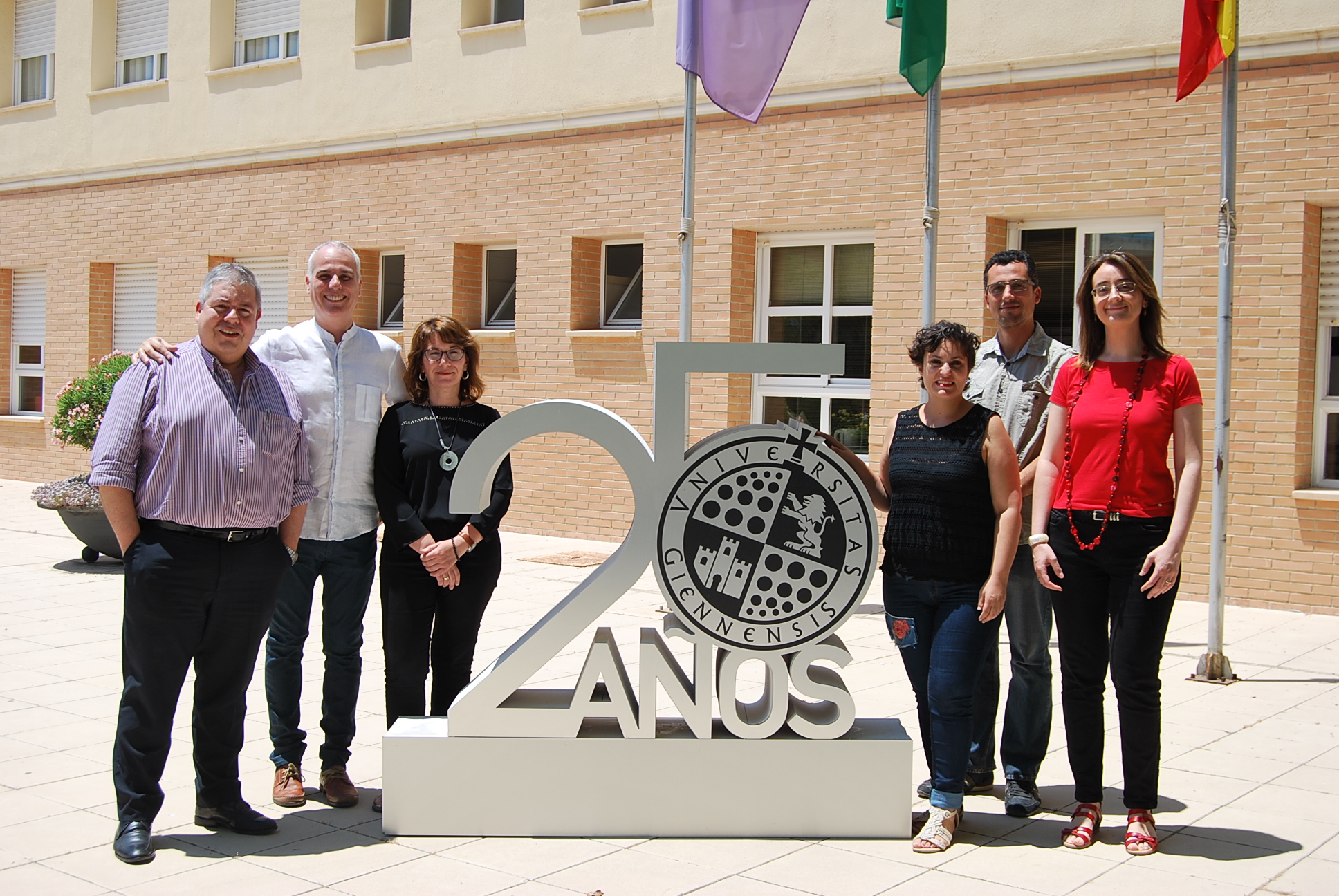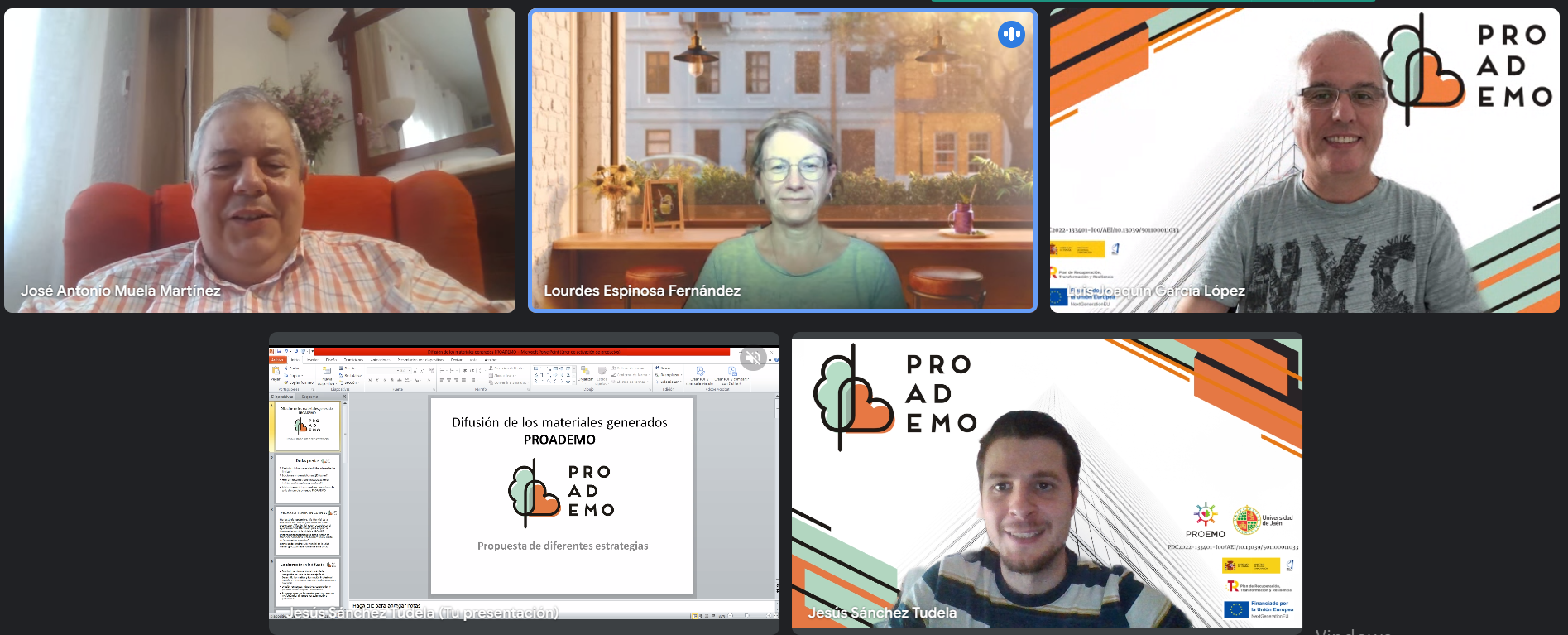The document, led by the University of Jaen, received input from researchers from other universities, clinical institutions, guidance groups, policy-makers and minority groups to promote the prevention and early treatment of this problem.
3/07/2018.- The Interdisciplinary Network for the PROmotion of Mental Health and EMotional Well-being in the Young (PROEM) has just published a report and roadmap (in Spanish and English) which analyzes the state of the art, needs and recommendations for improving psychological assessment and promoting mental health and emotional well-being in young people.
This document was developed from an international meeting held at the University of Jaen in late April and the subsequent gathering attended by PROEM network experts who debated on the issues raised previously. This report was drawn up by researchers specializing in mental health and other areas belonging to the University of Jaen, which heads the network, the universities of Cordoba, the Basque Country, Miguel Hernández, Deusto, Rovira i Virgili, the Autonomous University of Madrid, Almeria, UNED, the Completense University of Madrid and the University of Coimbra (Portugal). They were joined by professionals from clinical and community health institutions like the Les Corts Mental Health Centre Association and the Malaga Biomedical Research Institute. Other participants included guidance groups such as the Confederation of Psychopedagogy and Counseling Organizations in Spain and the Provincial Technical Team for Educational and Vocational Guidance attached to the Education Department o fJaen; and user groups and communities including the Spanish Association for Mutual Assistance against Social Phobia and Anxiety Disorders, the Spanish Society for the Study of Anxiety and Stress, and the State Federation of Lesbian, Gay, Transsexual and Bisexual Individuals.
“Emotional problems in young people are a public health problem not only because of the consequences and negative impact they have on youth quality of life, well-being and development, but also because of the socioeconomic and health costs they entail”, explains Luis Joaquín García, researcher at the University of Jaen and head of the network. “However, despite the considerable research advances made in recent years into the diagnosis and treatment of these disorders, promotion of mental health and emotional well-being, and mental health prevention, it continues to be marked by fragmentation arising from mostly isolated and/or divided work carried out by different professionals and researchers”, he adds.
“This context drove them to promote greater collaboration among the different actors involved: mental health and other discipline researchers and professionals as well as the youth themselves, their families and policy-makers, with particular interest paid to those associated with, or part of, minority groups at potential psychosocial risk. Acknowledging this need, the document emerges with a view to ensuring that the efforts, know-how and experience of each individual involved can not only deliver more impact and recognition, but also wider applicability and more guarantees of success in order to achieve the ultimate objective: improving the emotional well-being and mental health of our youth.”
“In particular, seven gaps had been identified during this research: poor adolescent health and emotional well-being literacy; a delay in the identification of mental health problems in schools and inadequate instruments; a lack of resources and coordination among different stakeholders and regions in the area of emotional health and well-being; excessive medicalization of mental health and the associated costs; a lack of health and emotional well-being policies coupled with an insufficient budget; a lack of awareness towards certain vulnerable and social minority groups; and increasing unhealthy habits among youth and abusive use of new communication technologies”
In an attempt to offer solutions, PROEM members and associate partners have drawn up a series of priorities and recommendations outlined in this report. “The message being sent out is that it is necessary to build mental health literacy; take on more mental health specialists in schools; provide training for education and primary healthcare professionals; increase the budget for mental health policy implementation; develop a more efficient health network; and encourage research that works towards identifying the risk factors, promoting positive mental health and developing efficient and effective interventions”, states Luis Joaquín García.
Now this report has been published, the network’s aim is to continue involving all actors in its dissemination and to create new interdisciplinary working groups to put into practice the actions proposed under this project, which began in 2016 thanks to funding from the Spanish Ministry of Economy, Industry and Competitiveness, the State Research Agency (AEI), and ERDF Network of Excellence grants PSI2015-70943-REDT and PSI2017-90650-REDT. Initial contact with the Territorial Delegation of Education attached to the Government of Andalusia in Jaen has been made to create synergies by applying the priorities outlined in the report. These synergies can be of benefit to not only teachers, educators and counselors, but also to the adolescents themselves and their families.


